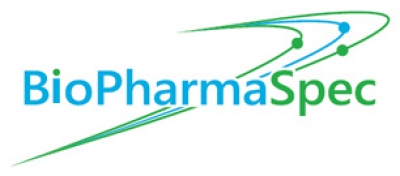Using MS as an orthogonal approach to ELISA for HCP identification and quantification
The analysis of Host Cell Proteins (HCPs) has historically been performed using ELISA-based tests. A number of off-the-shelf products (e.g. Cygnus kits) are available and the testing is relatively straightforward. However, it been recognized for some time that these kits generally allow detection of a maximum of ~70% of the HCPs present in biopharmaceutical products. This is due to the fact that in any anti-HCP antibody pool, there won’t be antibodies available to cover the entire spectrum of HCP species present.
There is an increasing awareness of the valuable contribution that mass spectrometry (MS) can play in defining the HCP profile of a product more fully. MS approaches have the distinct advantage of detecting a wider population of HCPs in a de novo manner without prior knowledge or specialized antibody reagents, resulting in a complimentary HCP profile to the ELISA based HCP detection. MS is a highly sensitive, non-biased method for structural analysis that can lead to a better understanding of the product HCP profile and therefore higher product quality.
This webinar will describe the use of MS based analytical techniques as an orthogonal approach to HCP-ELISA and how, through the availability of new technologies and more specialized software, MS can be applied in to examine HCP profiles as fully as possible.
The webinar will include a discussion of the following topics:
• Protein library generation
• MS-HCP identification techniques
• Software considerations
• Orthogonality in HCP detection techniques
• Detection limits and coverage of HCPs of specific interest (e.g. enzymatic, immunogenic)
• When to include HCP-MS
This webinar will benefit all scientists involved in drug development and manufacture, downstream processing and quality control.
Register for this webinar now and join BioPharmaSpec Senior Scientists, as they share expertise in the application of mass spectrometry to Host Cell Protein analysis.
Presented by

Christina Morris,
Senior Scientist
Christina completed her BSc. in Biology at Imperial college and went on to obtain her PhD in Biomedical Engineering in 2013. She worked on an Artificial Pancreas project for type 1 Diabetes treatment and gained significant experience in hormone regulation for biologically-inspired medical technologies. This included the development of mass-spectrometric techniques for the simultaneous measurement of glucagon and insulin from pancreatic tissue. At BioPharmaSpec, Christina focuses on physico-chemical analyses and quantitative mass spectrometry, including the characterization of antibody drug conjugates and host cell proteins.

Jillian Roamer,
Senior Scientist
Jillian obtained her BS in Biology from the University of Nevada, Reno where she studied the role of pancreatic lipase-related proteins on cytotoxicity. Shortly after, she joined Charles River Laboratories Preclinical Services, starting in the Clinical Pathology group, and then the Analytical Chemistry group. After several years of small molecule research, she moved to the Biologics Testing Solutions division of CRL, concentrating on large molecule analytical chemistry research. Jillian joined BioPharmaSpec Inc. in 2015, and currently focuses on N-terminal sequencing, peptide mapping, amino acid sequencing, glycosylation analysis, and host cell protein analysis.





